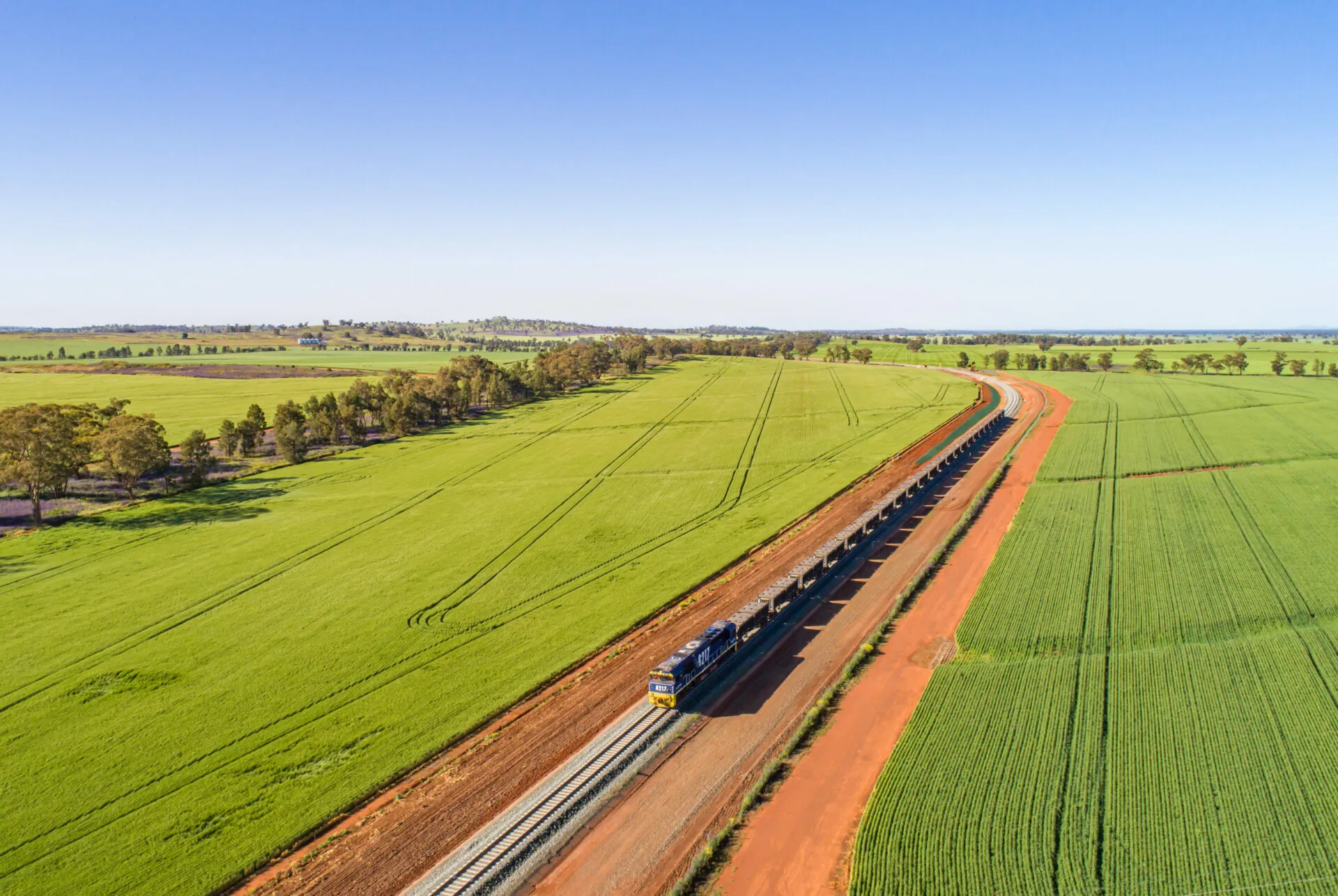INLAND RAIL
Spanning more than 1,700 kilometres, the $10.9 billion Inland Rail is the largest freight rail infrastructure project in Australia. With a track that stretches an eye-watering distance – equivalent of London to Lisbon – Inland Rail promises to smooth out snarls in Australia’s supply chains, reduce freight costs, connect businesses and producers to global markets and boost national prosperity.
Eighteen million Australians – four in five of the entire population – live on a narrow strip along the east coast. Moving goods between the nation’s three biggest cities of Sydney, Melbourne and Brisbane is already a significant challenge. But with Australia’s population steadily growing, freight along the east coast is expected to increase by 70% by 2030. Inland Rail will transform Australia’s freight transportation, delivering long-term dividends to safety, budgets, communities and the environment.
At a glance
- ClientAustralian Rail Track Corporation
- ServicesProject Programming & Delay Claim Analysis
- sectorInfrastructure
- LocationQueensland, Australia
Confidence today inspires a better tomorrow
The Australian Government appointed RLB’s client, the Australian Rail Track Corporation, to deliver this multi-billion-dollar infrastructure program in 2014. Since then, ARTC has prepared a detailed business case, refined the route and consulted with communities. In 2019, ARTC engaged RLB’s experts to provide a public sector comparator of a 157-kilometre section of the track – the most technically complex across the entire 1,700 route – from Gowrie to Karagu in Queensland. This process helped the ARTC to demonstrate how much the government would pay, and how long it would take to build, if it were to deliver Inland Rail by itself.
This nation-building project will transform the way Australia moves freight. On completion, Inland Rail will drive down costs of transporting freight, connect regional markets and boost Australia’s GDP. RLB is proud to play a role building the case for this once-in-a-generation project.Neal Taylor, Director, RLB
The route assessed by RLB traverses the steep terrain of the Toowoomba Range – with eight kilometres of tunnels, 51 rail bridges, 10 viaducts, and 13 level crossings – presenting a multitude of variables in time and cost. Among the programming challenges is a new 6.38-kilometre tunnel – the largest diameter diesel freight tunnel in the Southern Hemisphere. RLB’s team produced the construction program, and then, employing a risk analysis technique called a Monte Carlo simulation, calculated best- and worst-case scenarios from 10,000-plus variables. With our help, Inland Rail’s decision-makers could better understand how to balance cost, time and value for money.
Fresh thinking and flawless execution
In a geographically dispersed nation like Australia, efficient supply chains and national competitiveness are dependent on productive freight networks. Inland Rail will provide greater freight carrying capacity, with double-stacked trains, each up to 1,800 metres long, able to carry the same volume of freight as 110 B-double trucks.
Clever connectivity
Snaking its way across three states in less than 24 hours, the Inland Rail route will commence at Australia's busiest port in the heart of Melbourne. From Victoria, freight will cross the mighty Murray River into New South Wales, navigate the broad plains of Dubbo and low hills of Narrabri before terminating in Queensland’s biggest city, Brisbane.
- 1,700km
rail line stretching from Melbourne to Brisbane
- 262,000tonnes+
of steel – the equivalent to five Sydney Harbour Bridges
- 16,000job
years created over a decade
Better for people, purses and planet
Travelling through Australia’s four richest farming regions, Inland Rail will transform supply chains for agricultural producers who currently have limited and inefficient transport options. Once complete, Inland Rail is expected to divert two million tonnes of agricultural freight and remove 200,000 truck movements each year – reducing bottlenecks while saving more than 750,000 tonnes of carbon emissions annually.
A better tomorrow through flawless execution today
Inland Rail, like every megaproject, is unique. The skills needed are scarce and the learning curve steep. With strong technical capabilities, deep knowledge of best-in-class construction techniques and delivery methodologies, and the latest project planning software, RLB’s team translated complexity into actionable insights. With reliable and accurate advice, RLB has helped Inland Rail stay on track – and Australia’s prosperity-building rail infrastructure will be complete by 2025.

FURTHER INFORMATION:

Neal Taylor
Sector
Related and Notable Projects...
-
Answering the biggest questions in astronomy starts with a quest to build the world’s largest
SQUARE KILOMETRE ARRAY
View -
How Auckland’s $1.2 billion wastewater tunnel project breaks new ground
WATERCARE’S CENTRAL INTERCEPTOR PROJECT
View -
The $16.8 billion, 33-kilometre Westconnex motorway is the largest road infrastructure project in
WESTCONNEX
View

